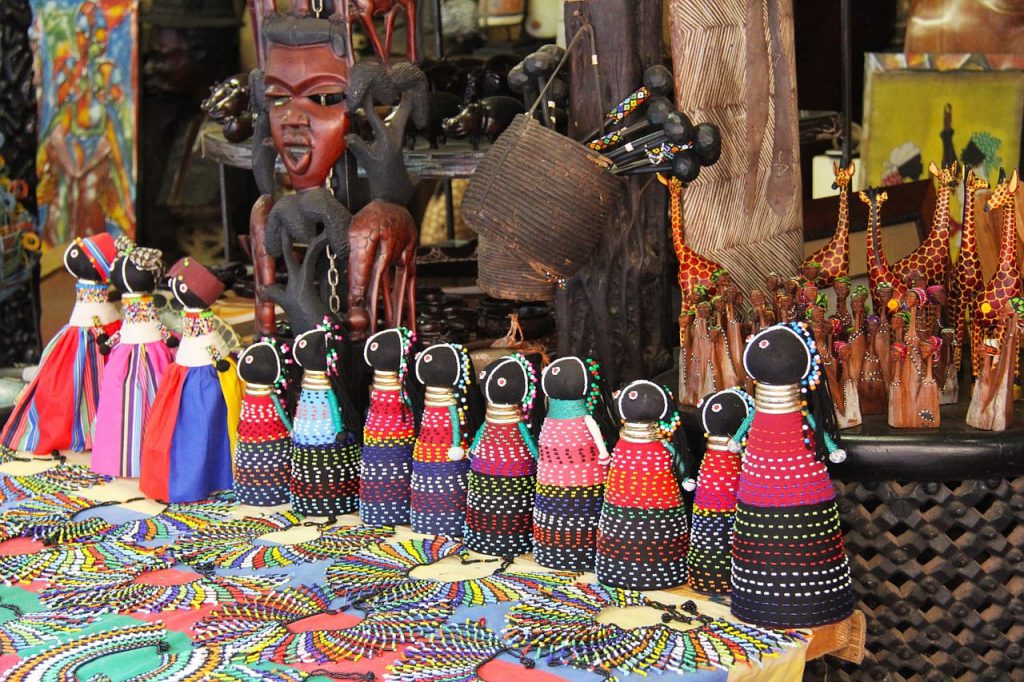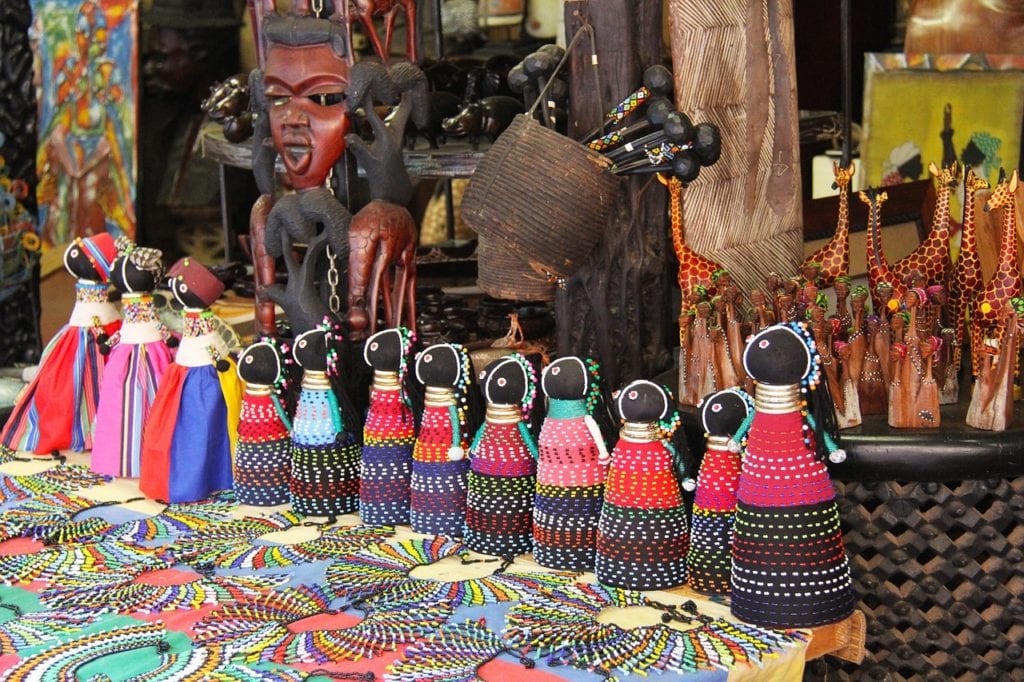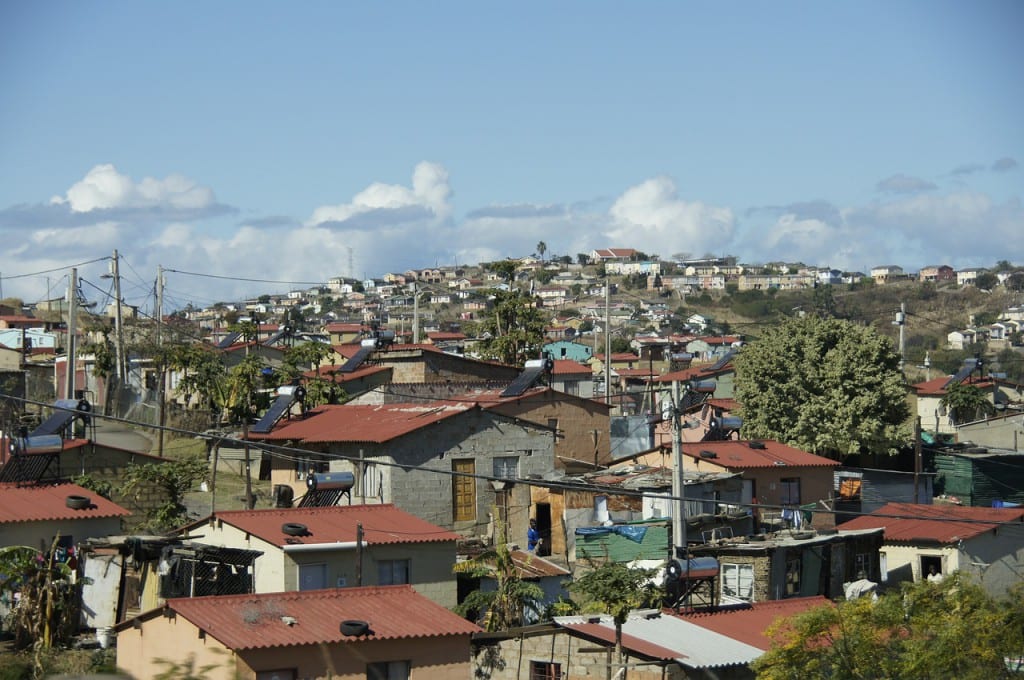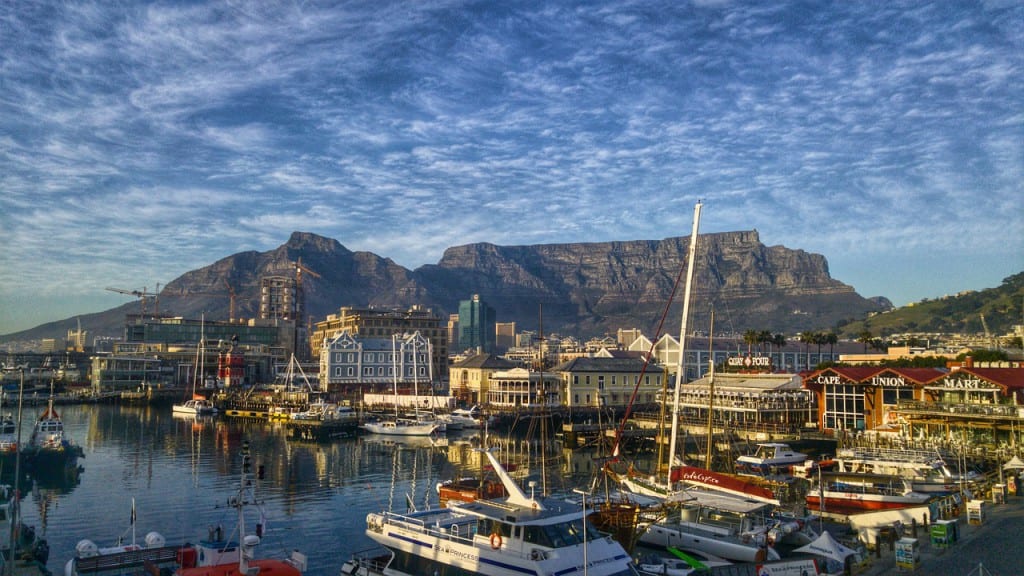
How Much Does It Cost to Live in South Africa?
South Africa’s 53 million strong population has its fair share of expats. While many revel in visiting the Rainbow Nation for a holiday, the thought of living in a country still bearing the scars of apartheid is a challenge. South Africa has high levels of poverty and racial disparity is still extremely prevalent but there are aspects of expat life in the country that are extremely appealing.
The Legatum Institute, a London-based think tank, release their global Prosperity Index annually. The survey ranks the most prosperous countries in the world. Many assume prosperity is used in reference to the financial standing of a country and, while this is included, the Legatum Institute considers more factors in its ranking.
Ranking in 48th place this year (out of 149 countries) was South Africa. This puts South Africa in the top 33%, with its rankings for personal freedom and governance helping it just remain in the top third. However, South Africa ranked in the bottom 25% for health, economy quality and safety and security.
South Africa already has a strong expat community and, with many job opportunities and the second largest economy in Africa, it is understandable as to why many move there. But, how much does it really cost to live in South Africa?
 Economy
Economy
The World Bank is currently listing South Africa as an ‘upper middle-income country’ and, second only to Nigeria, it has the largest economy in Africa. South Africa is rich with natural resources, has a strong manufacturing base, and capitalised banking systems which are aiding in its economical progression.
In its 2015/2016 Global Competitiveness Report, the World Economic Forum ranked South Africa 49th in its Global Competitiveness Index. The country ranked in first position for both strength of auditing and reporting, as well as financing through local equity markets. It also performed well in financial market development (12th) and market size (29th). South Africa is economically strong but this does not mean every citizen in the country is benefitting from its continued progression.
The concept of a ‘middle class’ is relatively new to South Africa. The country suffered under apartheid rule until 1994 and, during this tragic period, you were extremely rich or living in poverty. Sadly, this economic disparity was also reflected by race. Despite the abolishment of white minority rule in South Africa, the country is still struggling with income equality, poor education, high crime levels, growing public debt, and unreliable access to electricity.
Therefore, the banking sector and economy of South Africa may be strong but the foundations underpinning the infrastructure of the country are struggling. Many question, if South Africa is so rich, why is it so poor? This can be a culture shock to many expats.
Currency
Up until May 1961, South Africa were still using the money of Britain, forced upon the nation through colonialism and apartheid. However, that year, South Africa became a free nation and the South African rand was put into circulation. Expats will often see the rand shown as ZAR or R and it is divided into 100 cents (c). Currently there are five rand notes in circulation; R10, R10, R50, R100, and R200. Coins include R1, R2, R5 and 5c, 10c, 20c, and 50c.
 Housing in South Africa for Expats
Housing in South Africa for Expats
There are no restrictions on non-residents buying property in South Africa, which is ideal for expats who plan on remaining in the country for the foreseeable future. Even expats who are on a working visa have no limitations put against them. Furthermore, property prices are attractive and housing is seen as a great investment in the country. The only catch is that expats are restricted when it comes to borrowing money; they must provide 50% of the sale price themselves.
If expats choose to sell their property in the future, they will be expected to pay capital gains tax.
Renting is also a relatively straight-forward process for expats in South Africa. There is a wide variety of property at various prices and most expats will go through estate agents during the process. The best option for expats, once settled on an area they wish to live in, is to visit a local estate agent with a good reputation. At this point, budget and requirements can be set out and the agent will present different properties for viewing. Once a final decision has been made, expats will be required to fill out a lease application.
Usually, expats will need to prove that they are earning at least three times the monthly rental value of the home. Most leases are one or two years in length and roughly two months’ rent is used as a deposit to secure the property.
Shipping furniture to South Africa can be expensive and, for this reason, the majority of rental homes are already furnished.
Expat Healthcare in South Africa
According to the World Health Organisation’s list of best world health systems globally, South Africa falls in the bottom 8%. For a country that is so economically affluent, why is this the case? Granted, South Africa does have a large public healthcare system (and a small but fast-growing private sector) but, they are stretched and under resourced.
The public system offers all patients basic primary care but there is a lack of staff, a lack of equipment, and a lack of basic medicines. This is not helped by the burden placed on the fragile system by the never-ending battle with HIV and tuberculosis. It is imperative that expats in South Africa take precautions to avoid catching these diseases.
However, the government has recognised that South Africa’s healthcare system is failing and restructuring and revitalisation are underway. Government plans include implementing a National Health Insurance scheme, as well as upping the fight against diseases and improving human-resource management.
Although the country is taking some big steps to improve its system, it’s generally recommended that those who travel to South Africa or move there permanently take out international health insurance, as this will help to mitigate the costs, and ensure an excellent level of care.
Expat Education in South Africa
South Africa has a three-tier education system and the first nine years are compulsory however, children tend to make it through both primary and secondary schools. Grades 10, 11 and 12 are optional and for entrance to university, a student must receive matriculation endorsement. Many of South Africa’s universities are recognised as world-class institutions and a number of them are on the cutting edge of research in their areas of expertise.
The quality of teaching and facilities throughout South Africa’s public schools varies immensely as each province is responsible for the budget spent on education. Due to lack of funding, many children in public schools receive a low standard of education. However, in the larger cities, public schools have a better reputation. Generally, wealthier areas have better schools that meet the requirements of some expat families
However, in recent years, South Africa has made some excellent advances towards improving education across the country. The Government has put money behind new technology in schools and creating facilities that specialise in academic areas like business, commerce, engineering, arts and culture.
Although public schools can be a great way for children to integrate into South African society, the often-substandard establishments are not a popular choice with expat parents. Most expat parents choose to send their children to private or international schools. Fees for international schools are substantially higher but both international and private schools offer internationally recognised exams and excellent teaching facilities. Expat parents will be pleased to learn that children who attend international or private schools in South Africa have excellent acceptance rates into higher education worldwide.
 Cost of Transportation
Cost of Transportation
Expats in South Africa only need to hold a valid license from their home country to be able to legally drive in the country. Whilst petrol and diesel prices are low the price of buying a car is considerably more expensive when compared to the likes of Europe and the USA. Renting, however, is relatively inexpensive and long-term car rentals are common. Aside from the eye-watering prices of cars in South Africa another downside is the chaotic nature of the roads, both from crater-like potholes and locals driving by their own rules.
For expats wanting to travel from city to city companies such as Greyhound, Intercape and SA Roadlink are able to facilitate long-distance bus travel. Prices for these lengthy journeys, such as Cape Town to Durban, costs around 1000 rand (£56).
Local buses, even in major cities, tend to be limited and unreliable. Cape Town has a bus service called MyCiTi which is a shuttle service that runs on many routes throughout the city. Journeys are paid for on a MyConnect card – very similar to London’s Oyster card. Prices vary between peak and off-peak travel and distance travelled. Generally, the lowest fare is R5.90 (£0.30) and the highest, R35.89 (£2.02).
The most used form of public transport, particularly in cities and towns, is the minibus taxi; a hybrid service that is a cross between a bus and a taxi. Many expats are dubious about using them as they are often cramped or look unroadworthy. Furthermore, they often run on somewhat informal routes and you may need to hail it from the roadside. Most journeys cost around R7.5 (£0.42).
Outside of Johannesburg and Cape Town, train services are sparse. In Johannesburg, the high-speed Gautrain has been in operation since 2010 and provides reliable, clean, and safe travel. However, there are only ten stops across the three lines so, unless you live near one of the stations, it may not be a viable mode of transport. Fares range between R19 (£1.07) and R73 (£4.11) or, passengers can buy train passes which give 7.5% or 15% off of fares.
However, if you are living in Cape Town, their Integrated Rapid Transport trains (IRT) run on an extensive network and link with MyCiTi shuttle buses. They are used mainly by commuters and are championed for their punctuality and inexpensive fares.
Jobs in South Africa for Expats
South Africa has a huge economy but there are vast numbers of people looking for jobs and very few roles available. The country needs expertise from foreign experts in many industries but lots of expats are put off by the application process of getting their hands on a work visa.
Many of the sectors in South Africa are rich with international experts as there is not enough local expertise to fill the numerous roles. Finding a job in South Africa needs extensive research but if you offer a developed skill set, qualifications, and work experience you are a very strong candidate. The industries actively seeking educated expats are engineering, teaching, IT, and healthcare.
The majority of South Africans are classes as unskilled or semi-skilled. Many South African professionals have emigrated to the likes of Australia and the UK so there is a huge demand for talented foreigners and employment opportunities are rife if you do your research.
Comparison to UK
The world’s largest database, Numbeo, has a vast selection of user contributed data in regards to South Africa. Compared to the UK, the cost of living is significantly less in South Africa.
The tables below provide an over view of the differences in costs between South Africa and the UK. Please note that all South African prices have been converted into British pounds.
| Groceries | UK Price (£) | SA Price (in £) | Cheaper Country |
| Milk (1l) | £0.91 | £0.72 | South Africa |
| White bread (500g) | £0.95 | £0.69 | South Africa |
| Eggs (12) | £2.19 | £1.34 | South Africa |
| Local Cheese (1kg) | £6.04 | £5.12 | South Africa |
| Banana (1kg) | £1.01 | £0.94 | South Africa |
| Water (1.5l) | £0.92 | £0.76 | South Africa |
| Transport | UK Price (£) | SA Price (in £) | Cheaper Country |
| Petrol (1l) | £1.13 | £0.71 | South Africa |
| One-way ticket | £2.50 | £0.57 | South Africa |
| Taxi (1km) | £3.11 | £0.57 | South Africa |
| Utilities (Monthly) | UK Price (£) | SA Price (in £) | Cheaper Country |
| Electricity/Heating/Water for 85m2 apartment | £150.49 | £52.45 | South Africa |
| 1 minute of PAYG talk time | £0.16 | £0.11 | South Africa |
| Internet (10 Mbps, unlimited data, cable/ADSL) | £24.39 | £48.65 | UK |
| Clothing | UK Price (£) | SA Price (in £) | Cheaper Country |
| Jeans (Levi or similar) | £57.15 | £40.64 | South Africa |
| Dress (chain store) | £29.91 | £27.16 | South Africa |
| Nike running shoe | £64.20 | £59.31 | South Africa |
| Leather business shoes | £76.64 | £60.84 | South Africa |
| Eating Out | UK Price (£) | SA Price (in £) | Cheaper Country |
| Fast food meal | £5.00 | £2.85 | South Africa |
| Inexpensive restaurant | £12.00 | £5.69 | South Africa |
| 3 course, mid-range | £50.00 | £25.62 | South Africa |
| Cappuccino | £2.53 | £1.24 | South Africa |
| Coke/Pepsi | £1.14 | £0.64 | South Africa |
| Imported beer | £3.50 | £1.71 | South Africa |
